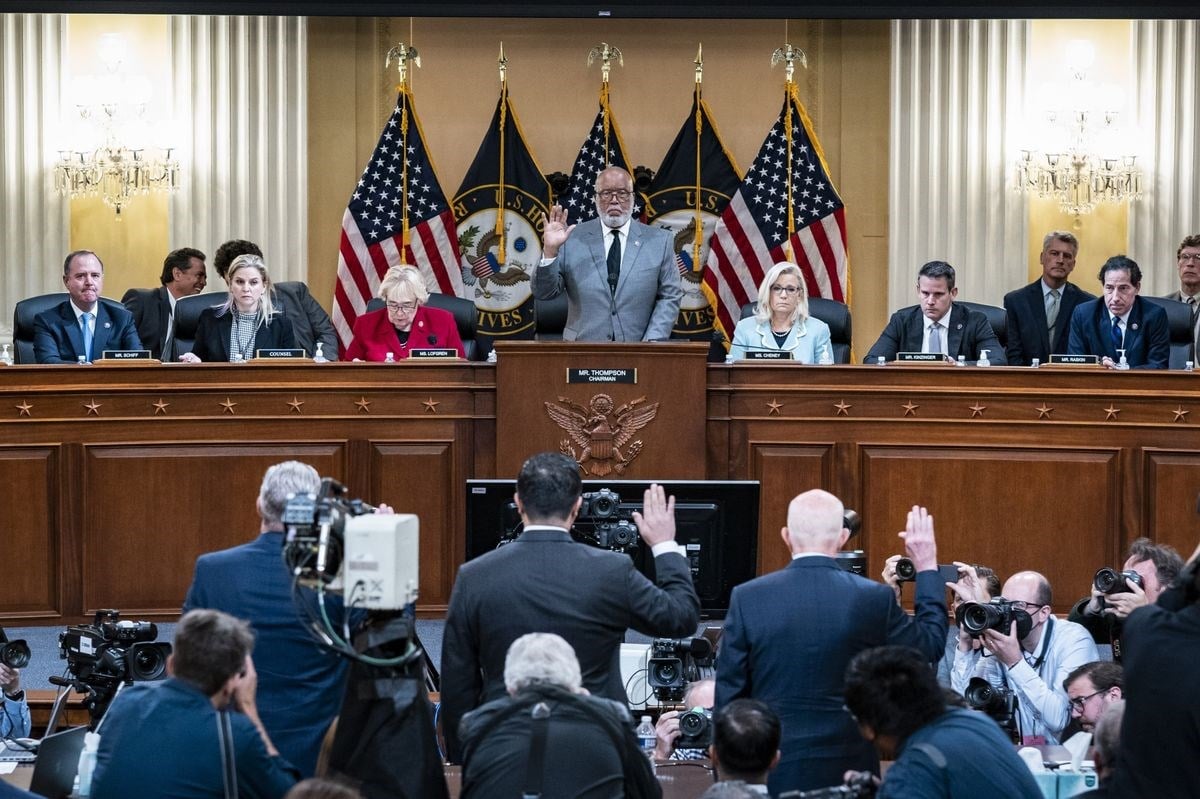Final report on Jan.6 riots: Trump charged on 'multi-part conspiracy'
The committee is sending recommendations to the US Justice Department to file four criminal charges against Trump, which include inciting or aiding sedition.
-

The January 6 House Committee (Bloomberg)
The final report by the US House January 6 Select Committee on the investigation of the Capitol riots has been concluded: former President Donald Trump is accused of engaging in a "multi-part conspiracy".
According to the report, the MAGA campaigner "purposely disseminated false allegations of fraud... and for purposes of soliciting contributions," which led to the riots at the Capitol. The report stated that these indicate support for "a multi-part conspiracy to overturn the lawful results of the 2020 Presidential election."
'One objective: To obstruct'
The committee, based on the report, included recommendations to the US Justice Department to file four criminal charges against Trump, which include inciting or aiding sedition (rebellion-instigating speech or rhetoric), but they are however not binding.
Trump will be the first President to be conducted to a criminal referral - if the Committee decides to go through with it.
"The Committee’s work has produced a substantial body of new information. We know far more about the President’s plans and actions to overturn the election than almost all Members of Congress did when President Trump was impeached on January 13, 2021, or when he was tried by the Senate in February of that year," the report confirmed.
The probe further found that the former President and a number of other individuals "made a series of very specific plans, ultimately with multiple separate elements, but all with one overriding objective: to corruptly obstruct, impede, or influence the counting of electoral votes on January 6th, and thereby overturn the lawful results of the election."
The January 6 House panel also recommended criminal referrals for Trump's attorney John Eastman and others for breaching federal criminal statutes.
"The first criminal statute we invoke for referral is [obstruction of an official proceeding]. We believe that the evidence assembled throughout our hearing warrants a criminal referral of former President Donald J. Trump, John Eastman, and others for violations of this statute," the panel said.
Detaining one after the other
Steve Bannon, a former White House aide, was sentenced to prison for 6 months and assigned more than $200,000 in fines over charges of contempt in Congress. Bannon was the only target convicted of contempt for his refusal to comply; subpoenas have been proven difficult to enforce, within this context.
Two Tennessee men were also detained last Friday, on the basis of allegedly plotting to assassinate FBI agents investigating them for the Capitol riots.
Edward Kelley was charged with conspiracy, retaliating against a federal official, and solicitation to commit a crime of violence while simultaneously being subject to charges of assaulting an officer during the January 6 riots at the Capitol. Austin Carter was arrested and charged with partaking in the plot.
According to the New York Times, the pair planned to take out a list of 37 FBI agents, but an anonymous individual alerted the authorities after obtaining the list from Carter alongside a USB from Kelley’s home holding video of officers approaching his residence on the day of his arrest.
A QAnon supporter and self-acclaimed "poster boy" of the Capitol attack was also arrested last Friday and was given a prison sentence of five years.
More notably, in September, Trump supporter Douglas Jensen was sentenced to 60 months in prison for leading rioters into the Capitol building and directing them toward police officer Eugene Goodman.
Jensen was among the first 10 people to invade the facility, and per the prosecutors' allegations, he climbed a wall at the Capitol and observed mob members barge into the Senate wing entrance’s windows and doors.

 4 Min Read
4 Min Read








